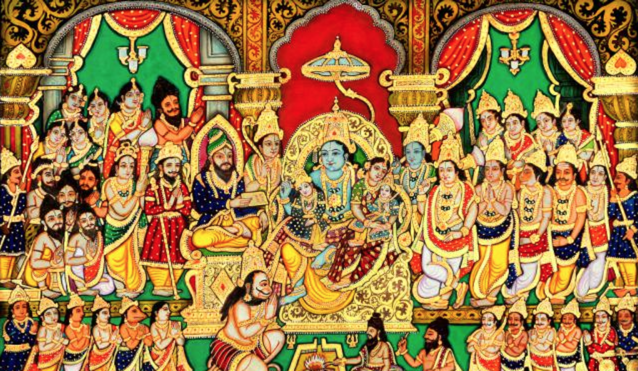Bhakti is the path of devotion to God, and it requires mercy, sincerity and discipline. However, sometimes devotees may fall down from their spiritual standards and commit mistakes. This can happen even to sannyāsīs, who are renounced monks dedicated to God. Why does this happen, and how can it be avoided? In this article, we will explore the meaning, causes and solutions of falling down in bhakti.
What does “fall down” mean?
Falling down means losing one’s spiritual strength and purity, and deviating from the principles and practices of bhakti. It can manifest in different ways, such as breaking the regulative principles, neglecting the chanting of the holy names, losing faith in the scriptures and the guru, becoming attached to material pleasures, or developing pride and envy. Falling down can have serious consequences for one’s spiritual progress and happiness.
Reasons for fall downs and practical solutions in general
There are different reasons why devotees may fall down, and they can be classified into four categories, according to the difficulty of identifying and rectifying them. For each category, we will also suggest some practical solutions to prevent and overcome falling down.
Obvious reasons, which you and others can see
Some reasons for falling down are very clear and visible, both to oneself and to others. Breaking regulative principles, eating outside food, offering outside food to Bhagavān, and free-mixing of male and female devotees fall into this category. These obvious don’ts are becoming increasingly un obvious now, due to the influence of the modern society and culture.
Solution: One can check these visible reasons for falling down by exercising the will power to follow the rules and regulations. One should also avoid bad association and seek good association of devotees who are strict and sincere in their bhakti.
Reasons that can be found with some difficulty
Some reasons for falling down are not so obvious, and they require some introspection and analysis to find out. The causes that can be found through the eyes of philosophy fall in this category. Chanting with an improper attitude, not hearing or reading about Bhagavān’s form, qualities and pastimes fall in this category. Identifying this is not easy unless one sees through philosophy. Devotees generally aim at completing the rounds. Advanced devotees read but read for sake of preaching, not for themselves.
Solution: One should study philosophy to prevent such fall downs. One should also cultivate the proper mood and attitude while chanting and hearing about Bhagavān. One should chant attentively, humbly and gratefully, and hear with eagerness, faith and love.
Reasons which cannot be seen by the self and others but only by sādhus
Some reasons for falling down are very subtle and hidden, and they can only be detected by sādhus, who are saintly persons endowed with spiritual vision and compassion. Ego falls in this category. One cannot see one’s ego with the eyes full of ego. The ego that one is a senior devotee (senior devotee syndrome) falls in this category. It makes one subtly desire respect from others. The ego of sādhana also falls in this category. Sannyāsīs fall down because they think they are seniors and there is no need to take advice from others, nor do others give them advice.
Solution: One should associate with good devotees who point out our mistakes for our benefit and be prepared to listen to them. A good manager is open and accessible, while a bad one is not. One should also practice humility and tolerance, and avoid seeking honor and praise from others.Reasons that no one, including sādhus, can find unless one receives extraordinary mercy of Bhagavān.
Some reasons for falling down are so deep and profound that they can only be revealed by the extraordinary mercy of Bhagavān.
The conception that I am the seer, not the seen, falls in this category. Krsna Consciousness means one is not conscious of Krsna, but Krsna is conscious of him. One can never understand if one always sees through Krsna’s or his own eyes because we have always acted as the seer even while seeing through philosophy and sādhu-saṅga. Therefore, all śāstras recommend that one should see through the eyes of śāstras, which means seeing from Bhagavān’s viewpoint. Ego of faith, i.e., feeling that one has a lot of bhakti, falls in this category. One cannot know ego of faith in bhakti unless Krsna reveals it.
Solution: One should pray sincerely and fervently to Bhagavān for His mercy and guidance. One should also surrender completely to His will and accept whatever He arranges for one’s spiritual benefit. One should also be grateful for whatever bhakti one has, and not become complacent or proud of it.
However,in this article, Vaiṣṇava offense (aparādha) for one’s fall down, which many devotees attribute to has not included. One cannot always attribute problems in spiritual life to Vaiṣṇava aparādha if one does not follow basic principles.
One should have a general idea of the causes and their solutions. Then, one can gradually attain prem. Otherwise, one will be stuck in one of the four fall downs









